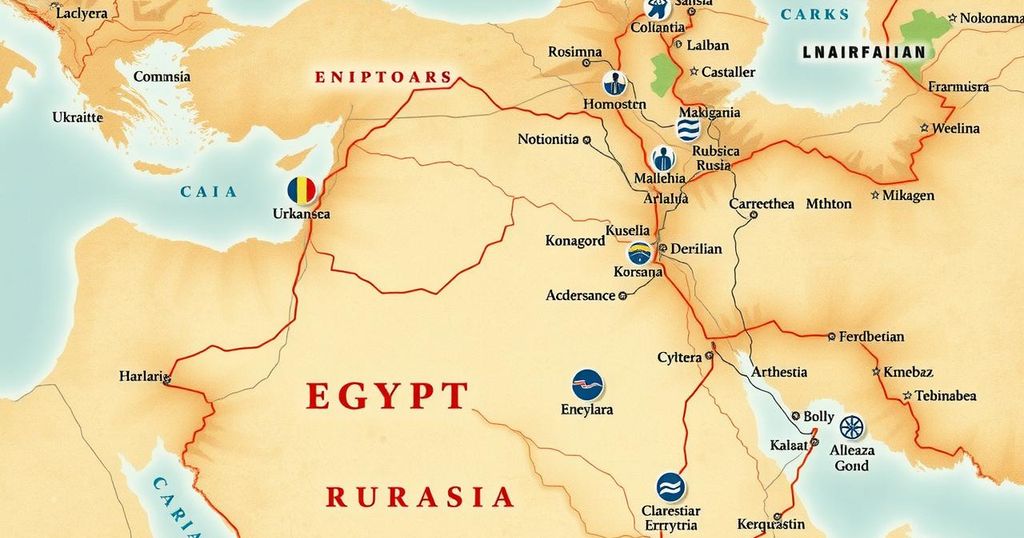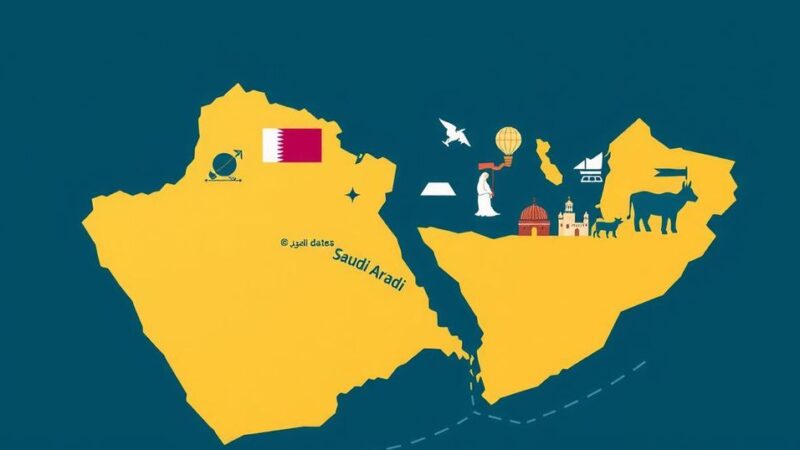Egypt has introduced new travel regulations for males aged 18 to 35 traveling to Russia and Ukraine to prevent military recruitment. This policy arises from security concerns about Egyptians becoming involved in the ongoing conflict. The war has severely impacted the Egyptian economy, particularly tourism and agricultural imports, necessitating careful management of national security risks posed by potential foreign military engagement.
The Egyptian government has implemented new travel regulations for nationals aged 18 to 35 wishing to visit Russia and Ukraine. This measure has been introduced amid concerns regarding the potential recruitment of these individuals into the military as the two countries remain embroiled in a devastating conflict. Travelers in this age group are now required to obtain mandatory approval from security authorities before proceeding to either nation.
Citing the importance of safeguarding national security, Ibrahim al-Masri, a member of the Committee on Defence and National Security, emphasized the need for these regulations. He cautioned that young Egyptians could fall prey to recruitment efforts, transforming them into mercenaries amidst proxy conflicts, potentially returning home to become security risks for Egypt.
The ongoing war has adversely affected the Egyptian economy and tourism sector, traditionally reliant on Russian and Ukrainian tourists. Moreover, Egypt has faced rising costs for agricultural imports that previously came primarily from these two countries, compelling the nation to seek alternative sources for essential supplies.
Parliamentary warnings arose after a Ukrainian journalist shared a video featuring an Egyptian purportedly captured while fighting alongside Russian forces. In this video, he recounted his illegal work in Russia to fund his education and the subsequent offer to join the Russian army in exchange for his freedom and citizenship. Estimates of Egyptians involved in the conflict remain uncertain, but analysts suggest the number could reach into the hundreds or thousands.
Since the war’s outbreak, the Egyptian government facilitated the return of most students studying in Ukraine. However, many students in Russia opted to remain, drawn by the affordability of Russian universities. Security experts, like General Mohamed al-Ghabari, express grave concerns regarding the recruitment of Egyptians into the Russian Army, especially given the incentives offered.
Egypt has historically faced similar challenges, recalling the influx of nationals joining jihadist forces in Afghanistan in the late 1970s. With some Egyptians returning from battles in Syria, the government is cautious of a reiteration of past security issues.
Adopting a neutral stance in the conflict, Egypt seeks to maintain relationships with both Russia and Ukraine. Despite the geopolitical complexities, the looming prospect of recruitment among Egyptian nationals remains an urgent concern for authorities as they strive to address the implications of the ongoing war. An Egyptian embassy source has acknowledged the stricter regulations for travel to Russia, affirming the government’s intention to manage this precarious situation effectively.
In summary, Egypt has enacted new travel regulations for military-aged men seeking to travel to Russia and Ukraine due to concerns about potential military recruitment. These measures underline the government’s commitment to national security amidst the backdrop of a war that has adversely impacted the economy and placed its young citizens at risk. The situation prompts reflections on past occurrences of Egyptian nationals engaging in foreign conflicts, leading to significant security challenges upon their return. The government continues to balance its diplomatic relations while ensuring the safety of its citizens.
Original Source: www.newarab.com






